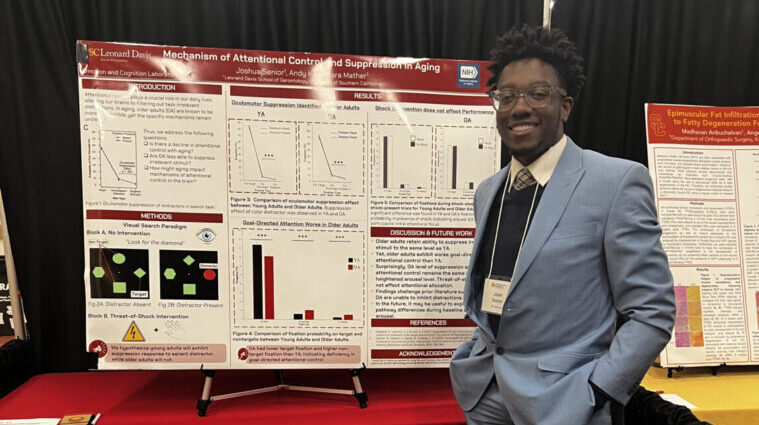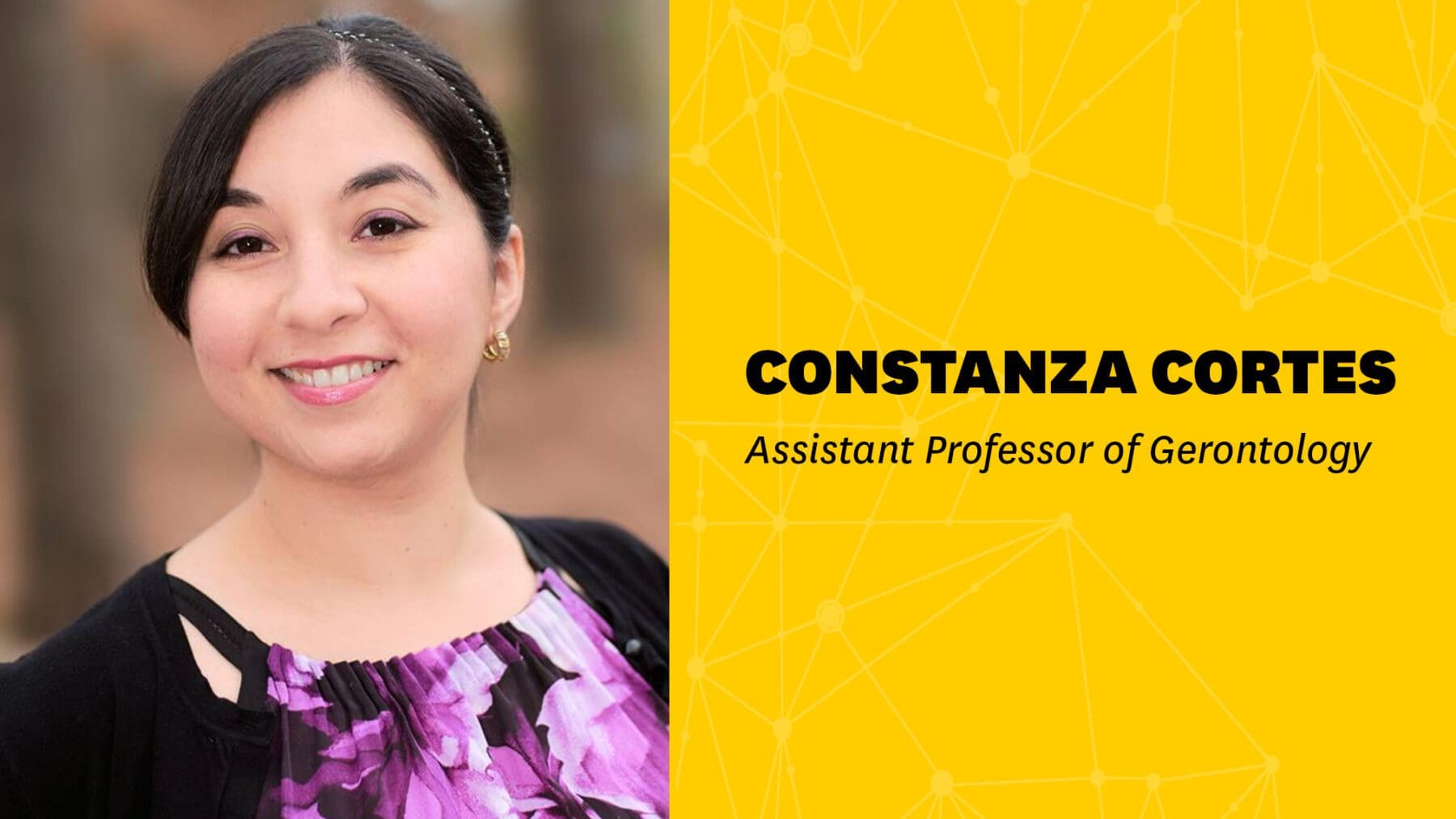Woman’s World and Yahoo Life featured a study by researchers at USC Leonard Davis on why women suffer more from Alzheimer’s disease than men.
Associated Press (republished widely), Fox News and Yahoo News spoke with Jennifer Ailshire of USC Leonard Davis on how environmental factors affect health and aging.
“Phoenix really is the model for what we’ll be seeing in other places, the world is changing rapidly and I fear we are not acting fast enough to teach people how harmful rising temperatures can be,” said Ailshire.

Biofeedback, “exercise in a pill” and stress exposure are among the potential therapies to boost physical and mental fitness as we age.
Read More

Josh Senior, a GEMSTEM scholar in Mara Mather’s Emotion and Cognition Lab earned second place in the Life Sciences category at the USC Undergraduate Symposium.
Read More
Column: Is Biden too old to run again? Is Feinstein too frail to stay? It’s not about age (LA Times)
The LA Times interviewed Caroline Cicero on President Biden's age.
Read More

USC Leonard Davis School Associate Professor Jennifer Ailshire has been awarded the 2023 Provost Mentoring Award, which recognizes faculty members who have demonstrated outstanding mentorship to USC faculty, postdoctoral fellows, and students.
Read More
SciTechDaily featured a study by Andrei Irimia at USC Leonard Davis on two indigenous Amazonian communities and how their lifestyles promote healthy brain aging.
Read More

New study provides evidence that a simple biofeedback practice reduces levels of Alzheimer’s-associated amyloid beta peptides.
Read More

Connie Cortes, assistant professor of gerontology at the USC Leonard Davis School, recently spoke to us about her research seeking to understand what is behind the beneficial effects of exercise on the brain with the goal of developing what she calls “exercise in a pill” therapies for cognitive decline associated…
Read More

Bérénice Benayoun, assistant professor of gerontology at the USC Leonard Davis School, received a $200,000 grant from the Chan Zuckerberg Initiative (CZI).
Read More






